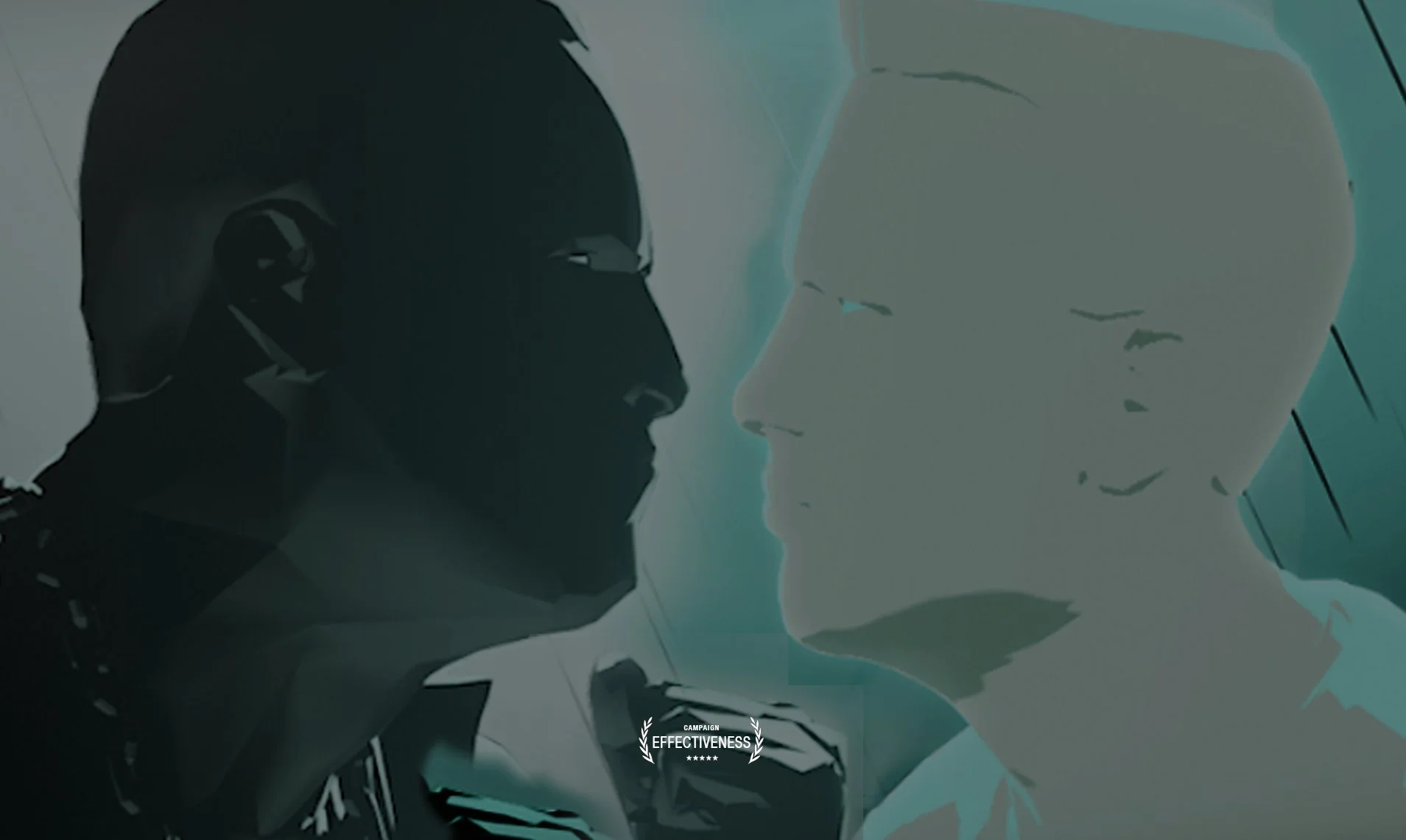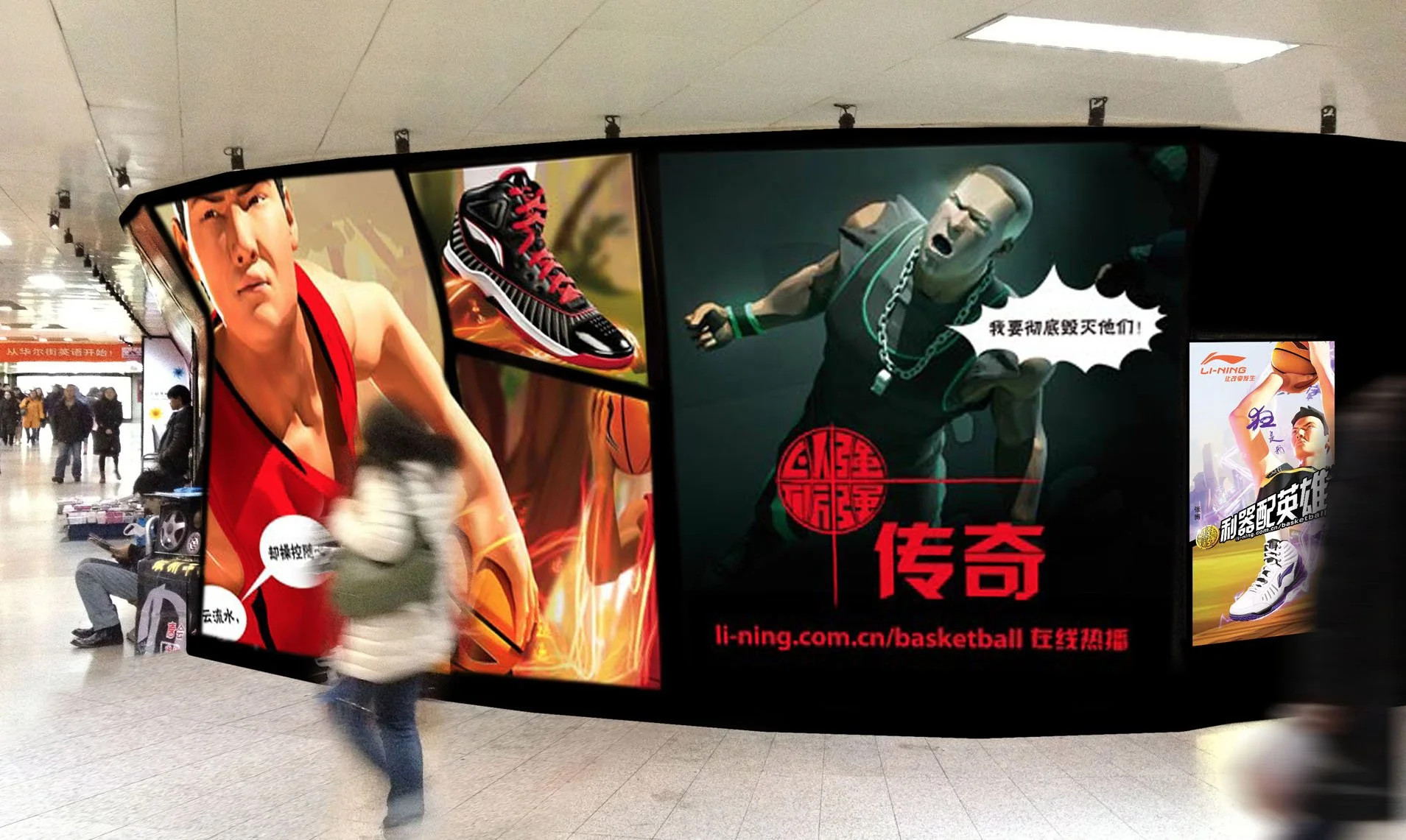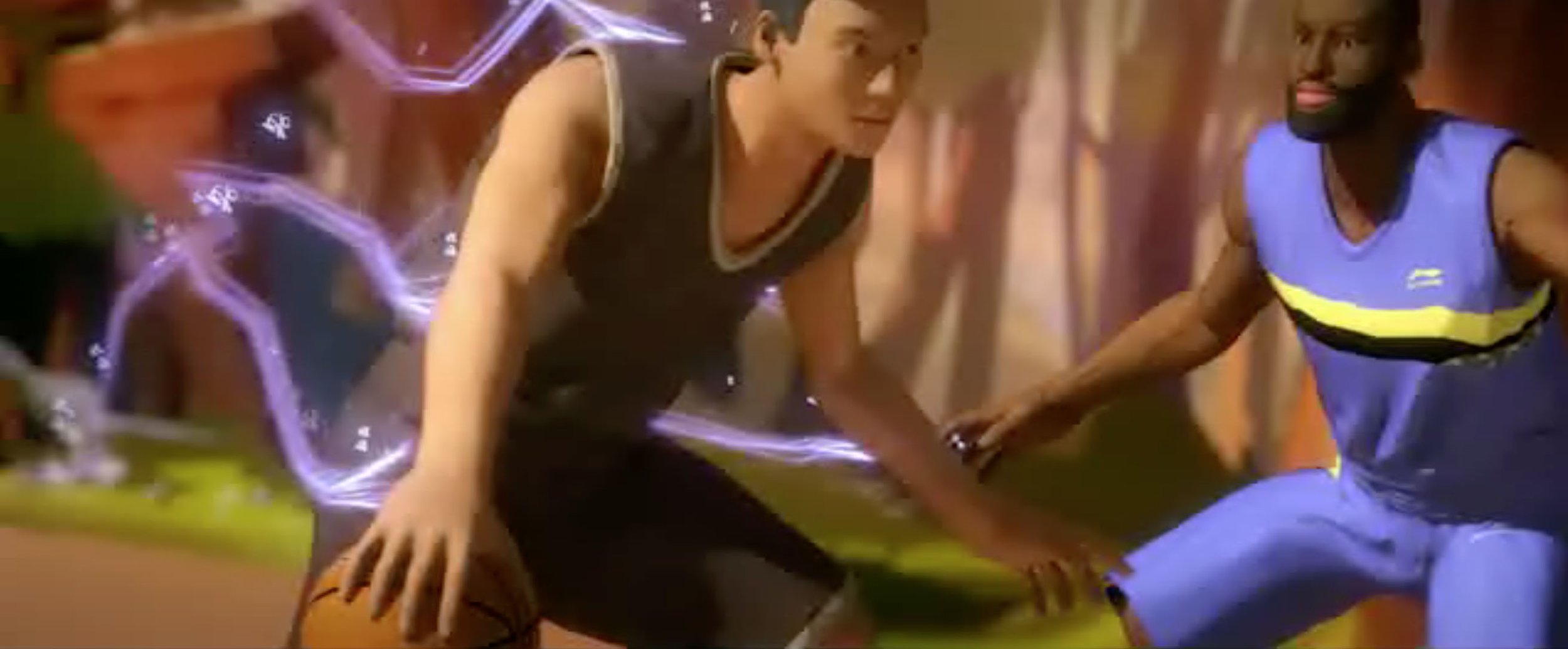WORKS
|
Sell-through rose by 200%.
|
Retail bookings increased by 900%.
|
The campaign didn't just turn heads; it turned the whole business.
| Sell-through rose by 200%. | Retail bookings increased by 900%. | The campaign didn't just turn heads; it turned the whole business.
Business-Driven & Tech Leadership Campaign
One 15-Minute Manifesto.
Turned Zero to 900% Yes.
-
Role:
Creative Country LeadMarket:
ChinaObjective:
Turn Li-Ning’s new slogan “Change is Not Enough” into market belief and product adoption, despite retailer scepticism, youth preference for Nike/Adidas, and a legacy Olympian that felt irrelevant.Key Actions & Strategy:
Produced a five-part brand film totaling 15 minutes; long-form storytelling aligned with Chinese basketball philosophy Yi-Qiang Li-Qiang, meaning: “Your greatness is never yours alone. To rise higher, you must train beyond your limits—and build power from others.”
Featured two NBA players (Baron Davis, Evan Turner) and two CBA athletes (Zheng Bo and He Tian Yu).
Offline integration: episodes displayed across retail stores as animated film strips; customers followed the story online and in-store.
No celebrity cameos or viral gimmicks — focus on character, meaning, tension, and product integration.
Results & P&L Impact:
Retail sell-through increased 200%.
Retail bookings rose 900%.
Successfully drove product adoption and reinforced brand narrative among youth and retailers.
Technical & Creative Innovation:
We launched the mini films on Weibo—long-form in a short-form world—unheard of then. Episodes ran from two to five minutes each. Most brands would have aired them and prayed. We turned them into living stories.Legacy & Business Impact:
Established Li-Ning’s manifesto as a market-belief driver; proved long-form storytelling could influence product sell-in and youth adoption; created a repeatable framework for integrated brand + retail activations.Signature POV:
“One story, lived and shared, can turn zero belief into 900% Yes.”
In 2012, no one was listening—not the retailers, the youth, or even the market.
Li-Ning had just changed its brand slogan from "Make the Change" to "Change is Not Enough." A bold move—but one that puzzled most. What did it even mean?
Retailers weren’t sold on the new basketball shoes. The youth chased Nike and Adidas. China's most decorated Olympian, the brand's namesake, had become a legacy figure—respected but irrelevant to the next generation.
Yet, Li-Ning needed this moment to move the product and prove it belonged in the global game. It had to do with secondary NBA stars, a limited budget, and a story too complex for a billboard.
So we did the unthinkable:
We wrote a five-part brand film—not a 15-second spot, but a 15-minute saga.
Two NBA players. Two CBA athletes.
A master. A kidnapping.
A basketball philosophy grounded in Chinese wisdom: Yi-Qiang Li-Qiang — strength paired with strength.
The idea? Your greatness is never yours alone.
To rise higher, you must train beyond your limits—and build power from others.
Baron Davis brought the fire, and Evan Turner, the force. They arrived in China and trained with local athletes under the Li-Ning discipline. Their play styles—Kuang and Yi—aligned with custom shoes that enhanced their strength. There was no celebrity cameo, no viral gimmicks, just character, meaning, and tension.
We launched the films on Weibo—long-form content in a short-form world—unheard of at the time. Episodes ran from two to five minutes each. Most brands would've aired them and prayed. We turned them into living stories.
Offline, the narrative unfolded across every retail wall—animated film strips wrapping Li-Ning stores like teaser trailers. You watched a chapter in-store. Then you followed the story online. And if it caught your attention, you walked out with the shoe.
No one believed this would work, but the results contradicted this scepticism. Sell-through rose by 200%, and retail bookings increased by 900%. The campaign didn't just turn heads; it turned the whole business.
This was more than content. This was Li-Ning's manifesto. Written in motion. Lived by players. And passed on—episode by episode—until belief caught fire.
A story too long for attention spans. Too Chinese for global buyers. Too brand-heavy for product sell-in. And yet, somehow, just right for this moment.
Change was never enough. But one 15-minute manifesto made the market say: Yes.










